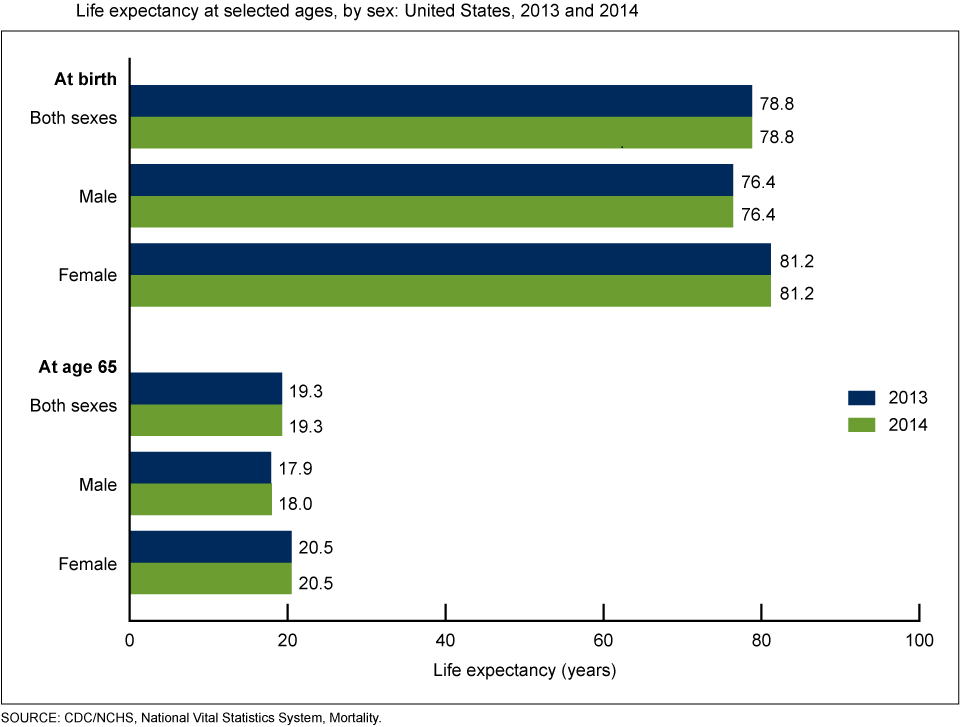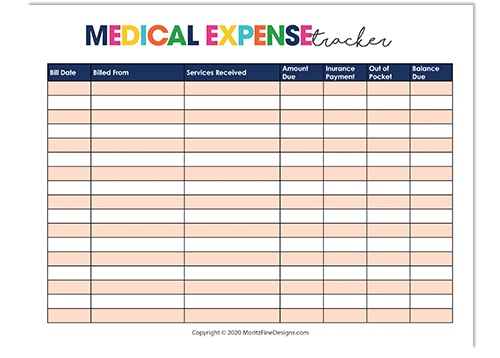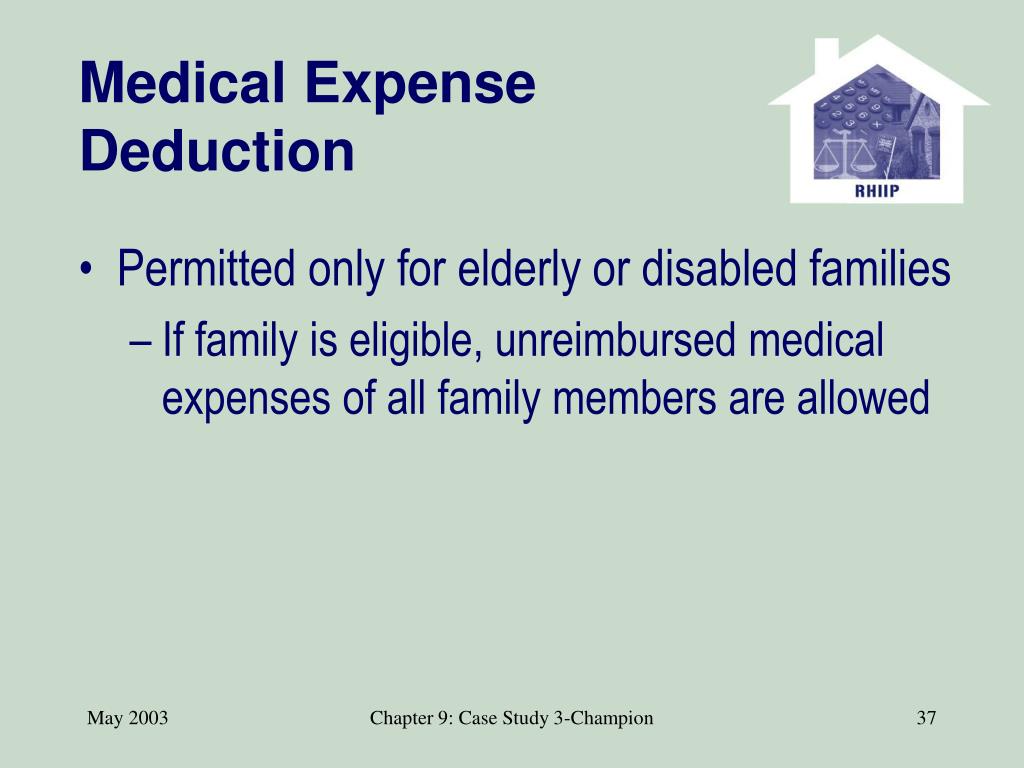
Medical expense deduction free#
SmartAsset's free tool matches you with up to three vetted financial advisors who serve your area, and you can interview your advisor matches at no cost to decide which one is right for you. You might want to take an extra step and work with a financial advisor who can address your overall financial situation - from taxes to investments and retirement. Finding a qualified financial advisor doesn't have to be hard.

Review the list of expenses that qualify (and the ones that don't), and decide whether it makes sense to take this deduction. And if your total itemized deductions don't exceed the new, higher standard deduction, then you won't take the deduction. But you can only deduct expenses that exceed 7.5% of your adjusted gross income.

There are plenty of qualifying medical expenses that you can claim on your taxes. If you're still not sure which expenses qualify, you can determine if it's eligible through the IRS.

You also can't deduct your employer's share of health insurance premiums. Household help, even if it was recommended by a doctor for your careĪny medical expenses that you already get reimbursed for, whether from insurance or from your employer, can't be deducted on your taxes. Meals and lodging while attending a medical conference Nicotine gum and patches that don't require a prescription Trip or program for the general improvement of health While there's a decent amount of healthcare costs you can itemize on your taxes, there are a few that don't qualify, including: If using your car, standard mileage rate reimbursements qualify (20 cents per mile), as well as out-of-pocket expenses for gas and oil.Ī self-employed health insurance deduction is allowed for those who qualify, but it's adjusted for income and not an itemized deduction. Weight-loss programs for a disease diagnosed by a physicianĪdmission and transportation to a medical conference that relates to a chronic illness you, your spouse or a dependent is suffering fromįalse teeth, prescription glasses, contacts, hearing aids, crutches, wheelchairs, guide dogs and service animalsĬosts for transportation to and from medical care facilities, including taxis, buses, trains and ambulances. Smoking-cessation programs and prescription drugs that help with nicotine withdrawal Reproductive health: Abortions, birth control and fertility treatmentsīreast pump and other breastfeeding-related supplies, not including bottles Inpatient treatment for alcohol or drug addiction In-home nursing care and inpatient hospital care Insurance premiums for health or long-term care coverage for itemizers on Schedule A Payments you've made to doctors, surgeons, dentists, chiropractors, psychiatrists, psychologists and some other nontraditional medical practitioners Dependents can include children and other relatives you care for. Remember that you can only claim medical expenses that you paid for this year only, whether it's for you, your spouse or another dependent. Many medical-related costs can be included in your itemized deductions.

The Tax Cuts and Jobs Act effectively doubled the standard deduction, which makes it less likely that you'll wind up itemizing. For the tax year 2022, which you'll file in 2023, the standard deduction limits are as follows: Itemizing deductions only makes sense if the total deductions you qualify for would exceed your standard deduction – a fixed dollar amount that reduces the amount of money you're taxed on. Note, however, that you'll need to itemize deductions to deduct medical expenses. If your total medical expenses are $6,000, you can deduct $2,250 of it on your taxes. You can get your deduction by taking your AGI and multiplying it by 7.5%. This threshold was originally scheduled to go up to 10% of AGI in 2019, but the 7.5% of AGI was extended to tax year 2021. The Consolidated Appropriations Act of 2021 made the 7.5% threshold permanent. President Trump's Tax Cuts and Jobs Act allowed taxpayers in 20 to deduct the total amount of medical expenses that exceed 7.5% of their adjusted gross income (AGI).


 0 kommentar(er)
0 kommentar(er)
